This travel story will list all the attractions in Kuala Terengganu and the Terenggnau food we tried.
Kuala Terengganu might not typically be the first choice for holidaymakers in Malaysia, especially among international travelers. However, a trip to Malaysia wouldn’t be complete without exploring the East Coast of Peninsular Malaysia. Even for those of us residing in Kuala Lumpur, many have not visited the attractions in Kuala Terengganu. Still, I think visiting the East Coast, particularly Terengganu and Kelantan, is important to understand more and appreciate our country's vibrant heritage.

After touring Kenyir Lake, we arrived in Kuala Terengganu, where we spent two nights exploring the capital of Terengganu before returning to Kuala Lumpur. Here is the list of tourist attractions and the local food we enjoyed.
1. Pasar Payang (Payang Market)

Pasar Payang is the central market of Kuala Terengganu. There was ample parking in this area, and we parked at a paid parking area just a few minutes from the market, right across the Post Office. The parking charge was RM2 for the entire day, which is much cheaper than in Kuala Lumpur.
Pasar means market in Malay. Pasar Payang consists of two buildings. The first primarily sells food, groceries, and household items. Part of it is also a traditional wet market, selling fresh meat and vegetables. Besides that, numerous stalls offer various dry foods, particularly local specialties. Many of these items are unique to Terengganu; some are from Kelantan and Thailand. Many of these delicacies are hardly found in Kuala Lumpur, and some we have never tasted before, not to mention for visitors from overseas.
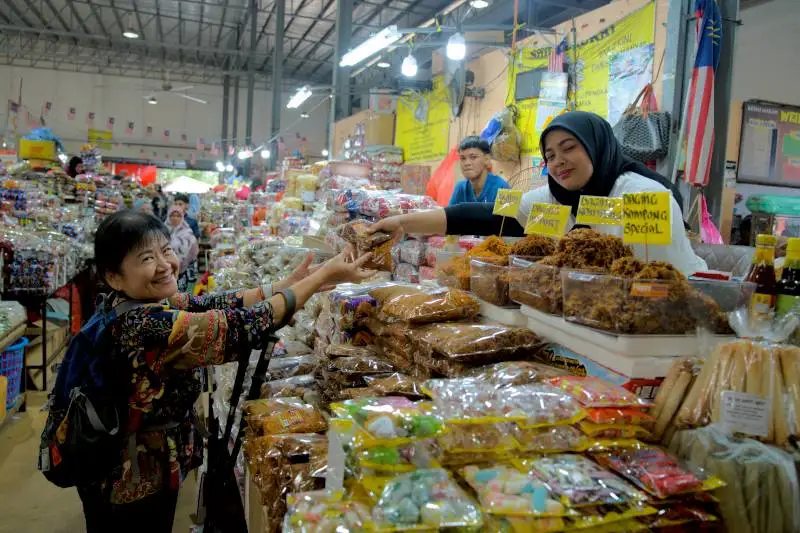
The second building is just next to the first one. It is a two-story building and is relatively newer. The ground floor was busy with numerous stores selling non-food items. However, during my visit, there was a special event with many vendors selling local specialty foods. Many donned traditional attire, preparing local delicacies and serving them fresh to us. We sampled many local foods entirely new to us, and it was an eye-opening experience. We thoroughly enjoyed our time there and hope such events will continue attracting more tourists and highlighting the rich local cuisine to foreign visitors.
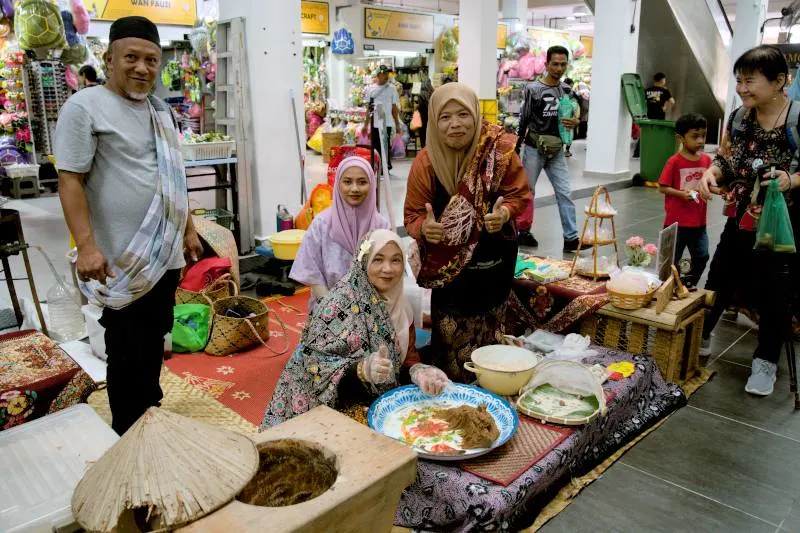
The name "Pasar Payang" originates from the traditional payang fishing boat. Initially, Pasar Payang had wooden stalls offering essential items. In 2019, the old structure was demolished to pave the way for a new, modern market complex as we see today.
2. Istana Maziah (Maziah Palace)
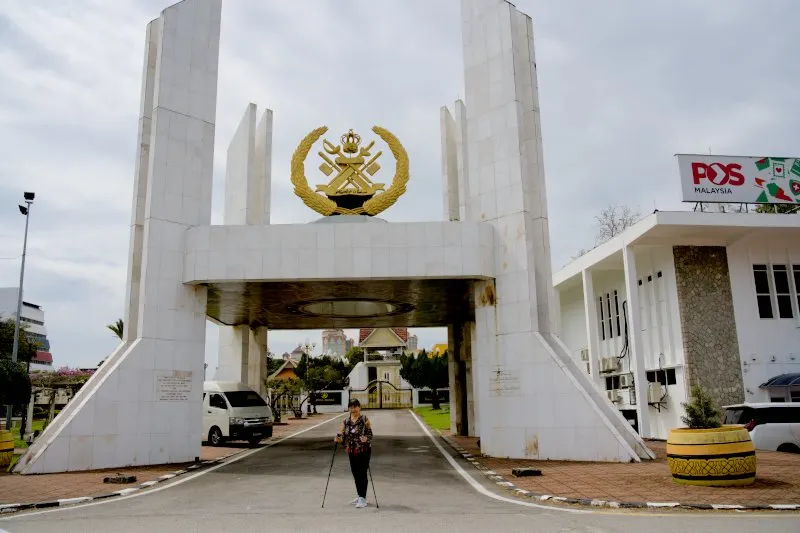
Istana Maziah is located just a short walk from Pasar Payang. This magnificent palace serves as the official residence of the Sultan of Terengganu. It was constructed to replace the earlier Istana Hijau, sadly destroyed by fire. The design of Istana Maziah is a unique blend of traditional Malay architecture infused with French design elements.
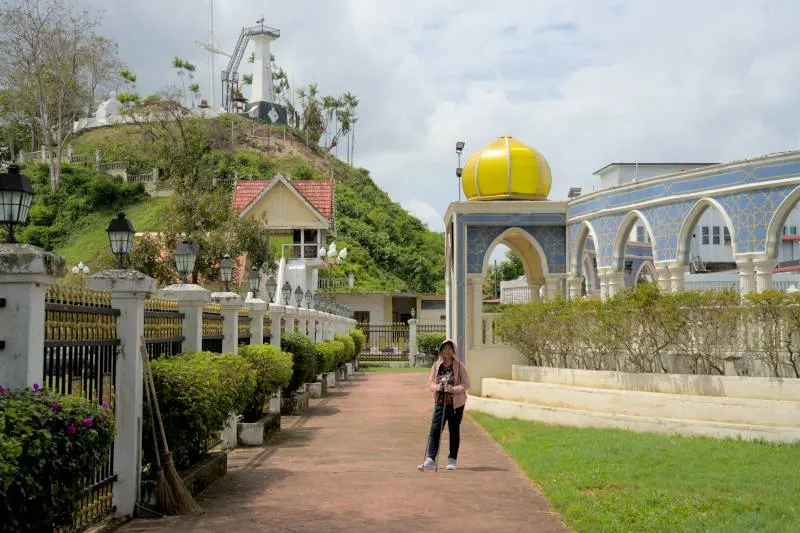
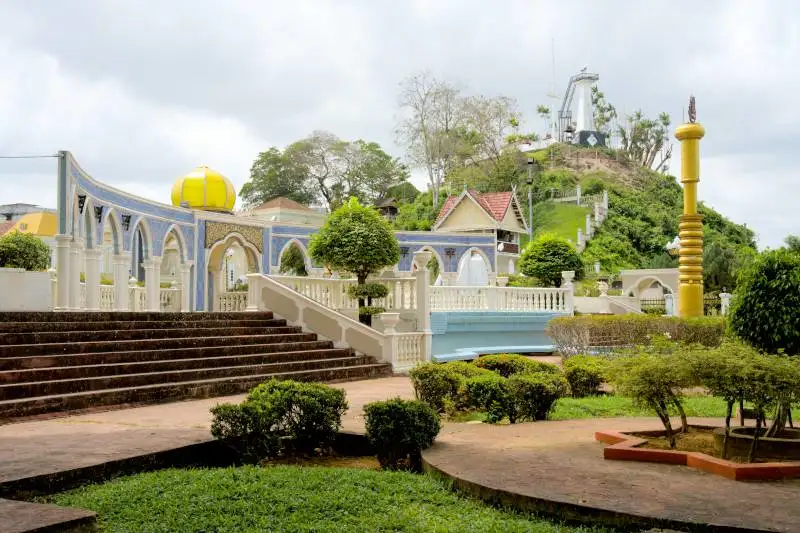
3. Dataran Shahbandar (Shahbandar Square)
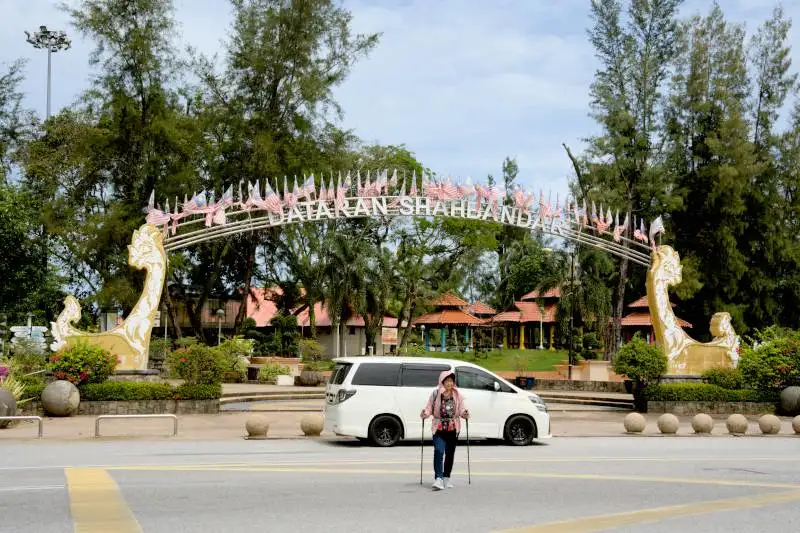
Next to the parking lot across the post office is Shabandar Square, a charming community garden that provides locals with scenic views and tranquil relaxation.
The lush greenery and well-maintained walkways make it an inviting space for strolls, picnics, and quiet relaxation by the riverside. It is also a place to host community events, festivals, and recreational activities.
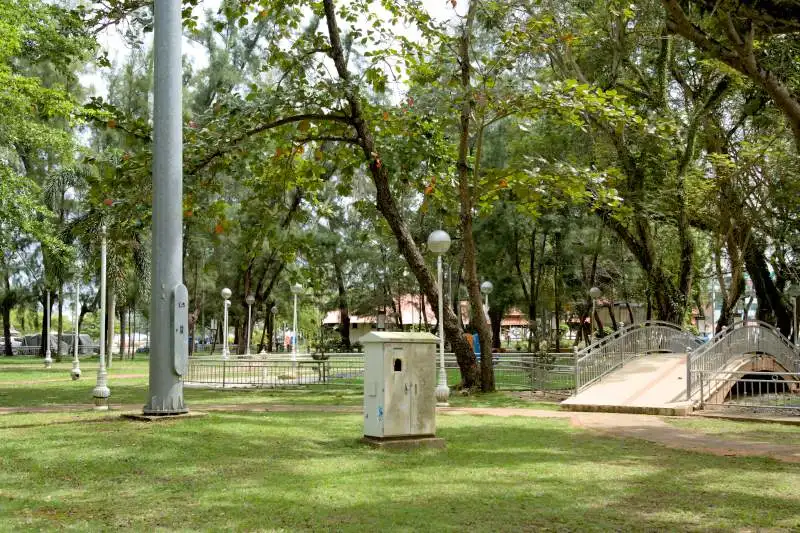
4. Pesisir Payang (Payang Coast)
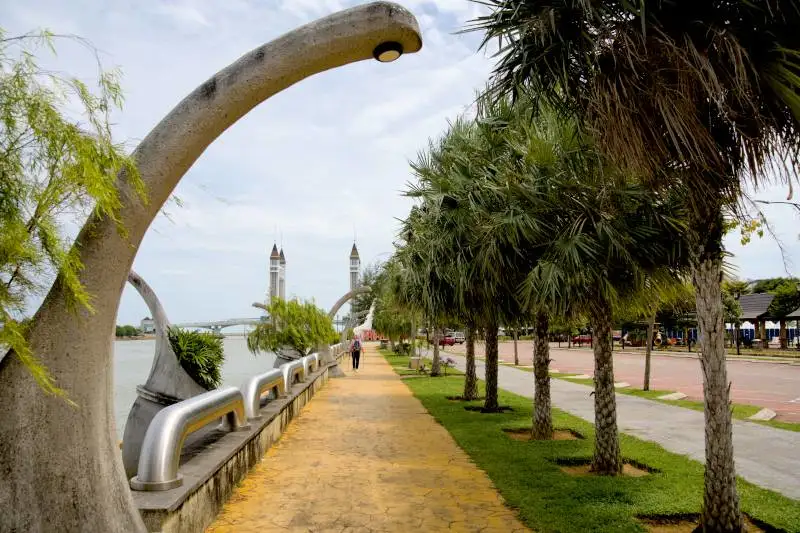
Pesisir Payang is next to Dataran Shahbandar along the Terengganu River. It is a picturesque waterfront park overlooking the river. Here, we saw river cruises plying along the river, making it a prime spot to admire the stunning Jabatan Angkatan.
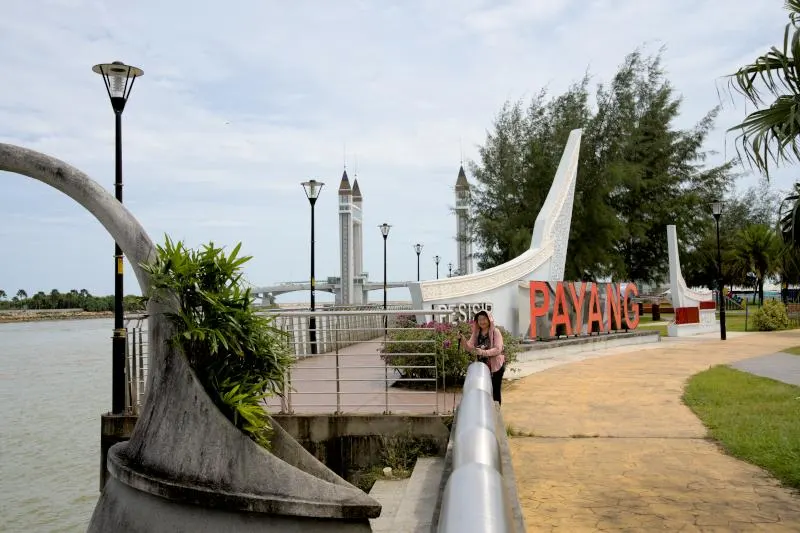
A paved pathway with metal railings runs alongside the riverbank, providing a pleasant stroll. Along the path, benches are installed for visitors to relax and soak in the beautiful riverfront scenery.
5. Abidin Mosque (State Mosque)
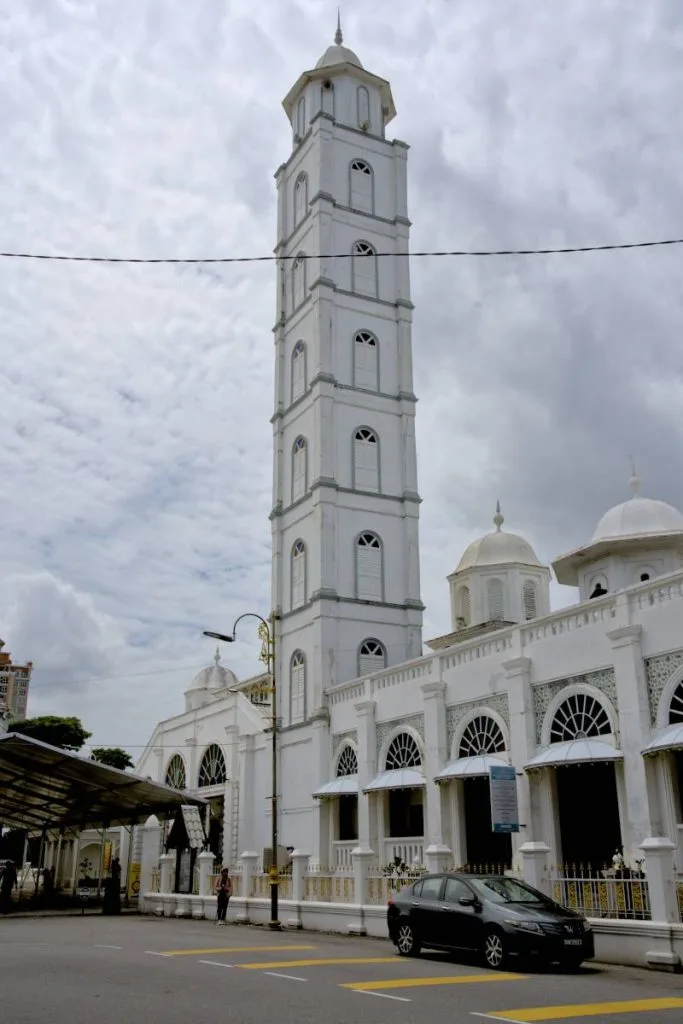
One of the attractions in Kuala Terengganu is the stunning Abidin Mosque, just a ten-minute walk from Dataran Sahbandar. Because of its striking white exterior, it is often called "Masjid Putih" (the White Mosque). The entrance features intricate calligraphic carvings of Quranic verses and decorative arabesques.
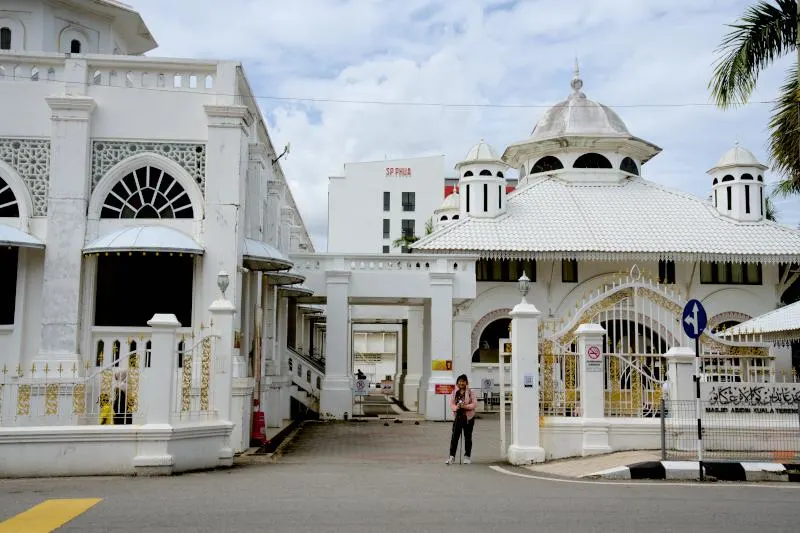
This architectural gem has a predominantly white façade, beautifully complemented by vibrant, colorful windows. While visitors are welcome to explore the interior, we opted not to enter due to time constraints, instead capturing lovely photos from outside.
6. Ho Ann Kiong Temple (和安宫)
After visiting the Abidin Mosque, I walked to the center of Chinatown, where the Ho Ann Koing Temple is located.
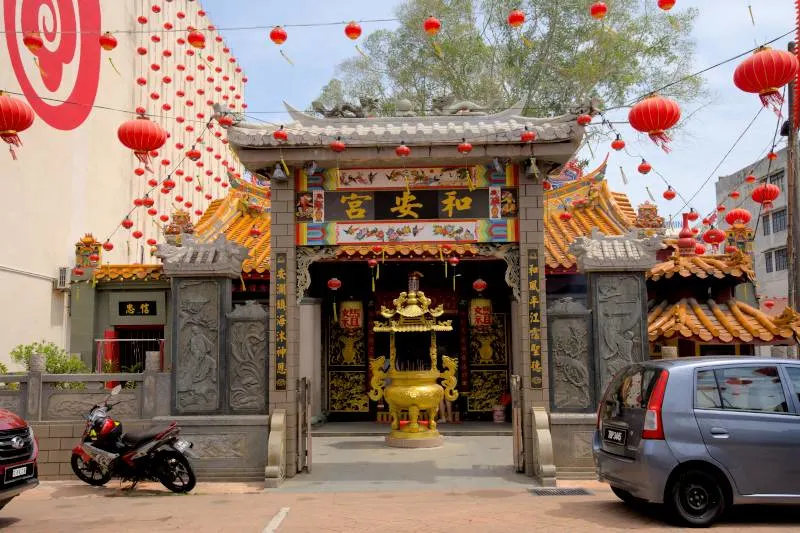
Although it is a relatively small temple, it was bustling with worshippers, all engaged in prayer and lighting incense during my visit. At the center of the prayer hall stands the statue of the main deity, 天上圣母 (Mazu).
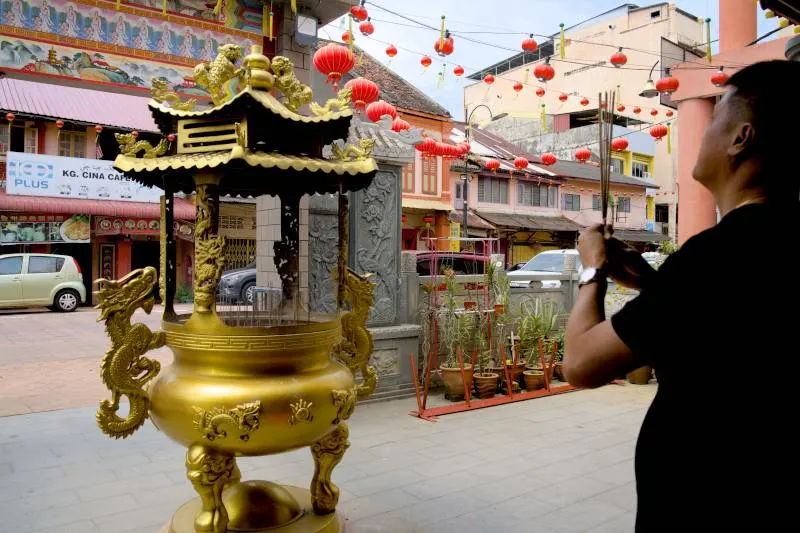
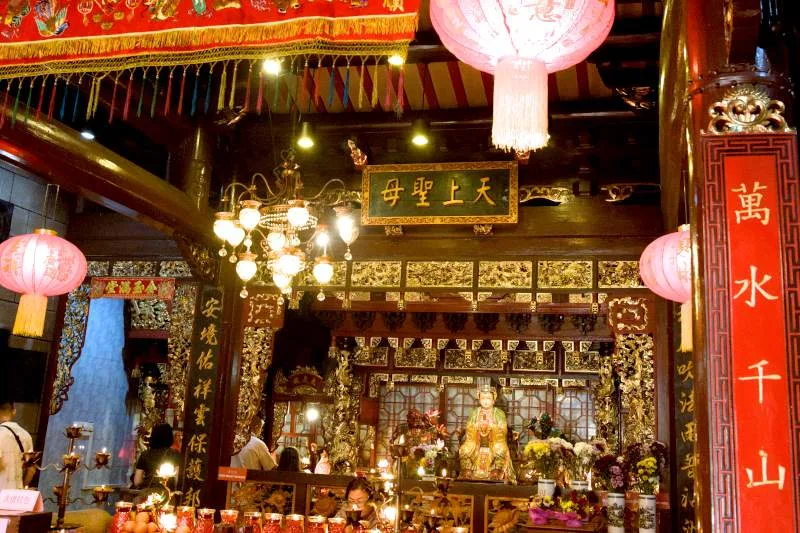
This temple was built in 1801 by early Hokkien immigrants who settled in Terengganu. The architectural style is primarily traditional Chinese, with vibrant red and gold as the primary colors. Intricate carvings and ornate decorations are classic features of Taoist temple design.
7. The entrance of Chinatown Terengganu (Kampung Cina)
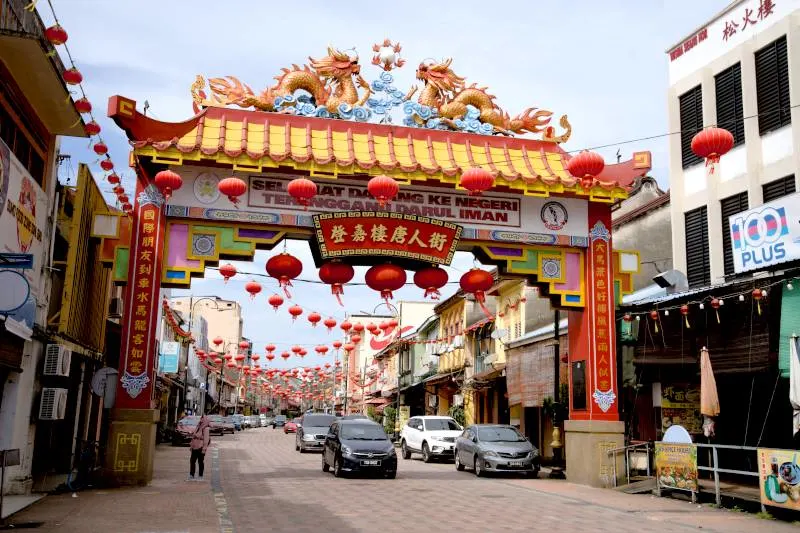
The Chinese population in Kuala Terengganu is relatively small, comprising about 4% of the total population. Despite that, Chinatown was one of the earliest settlements by the Chinese in the 16th century and one of the oldest in Southeast Asia. A noteworthy feature is its entrance gate, which is a popular photo spot. Naturally, we’re eager to capture some memories there as well.
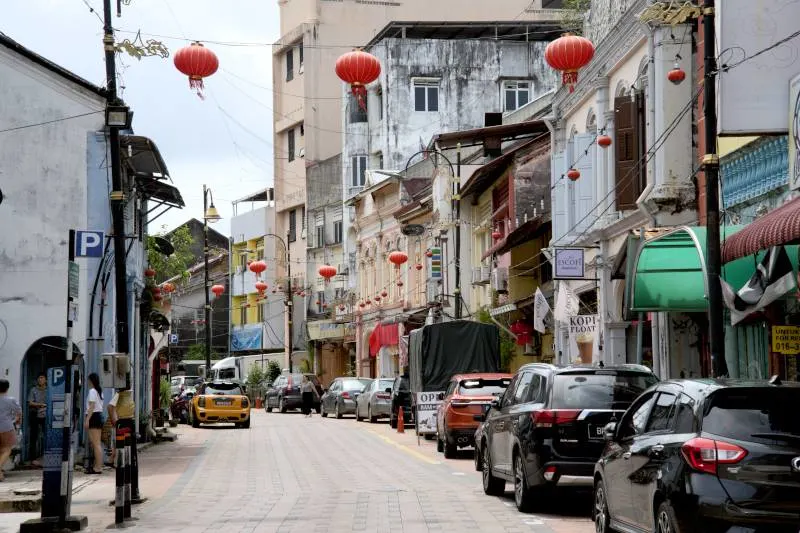
8. Masjid Kristal (Crystal Mosque)
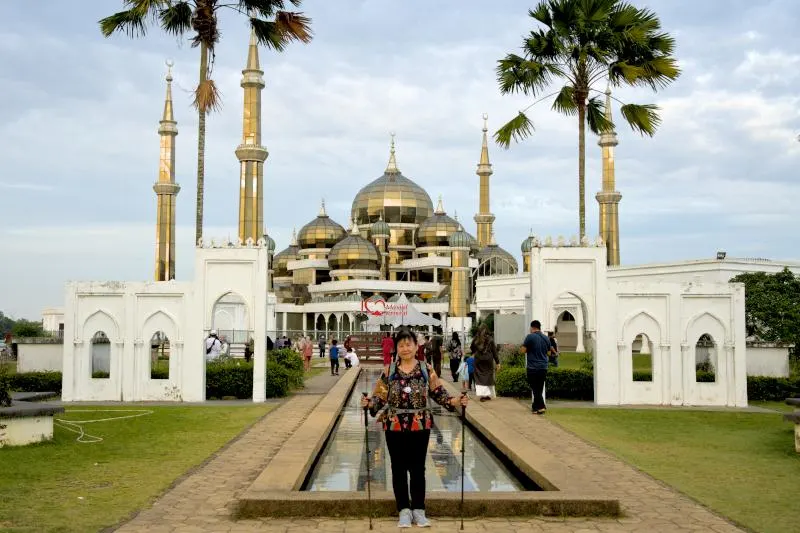
In the afternoon, we rested well at the Arena Boutique Hotel before heading to the iconic Crystal Mosque around 6 p.m.
Since it was already late and the adjacent Islamic Heritage Park had closed, we decided to visit the mosque alone and plan to explore the park the following day.
After parking our car near the Islamic Heritage Park, we strolled along the boardwalk that meandered by the river, leading us to the Crystal Mosque. The mosque was officially opened in 2008. It is a stunning architectural masterpiece built with steel, glass, and crystal, which gives it its name.
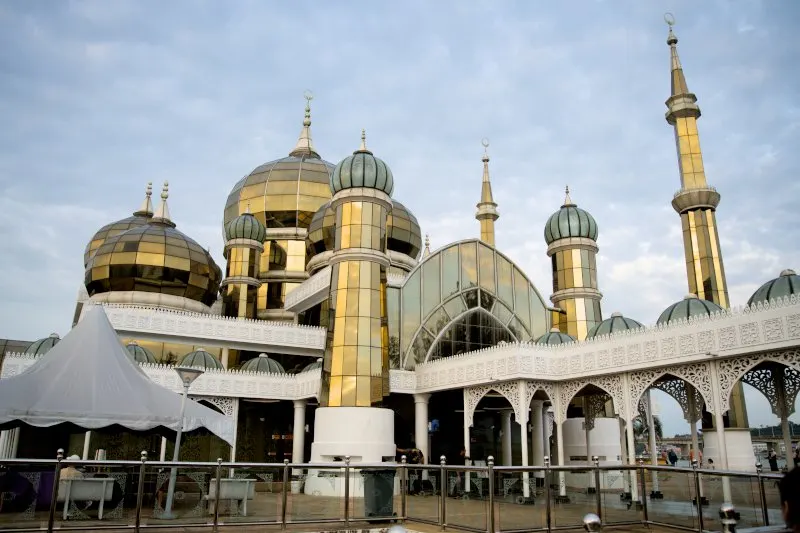
The design elegantly reflects light, creating a mesmerizing sparkling effect like crystals. The glass domes and surfaces permit natural light to pour in, resulting in a dazzling display during the day and a radiant spectacle at night.
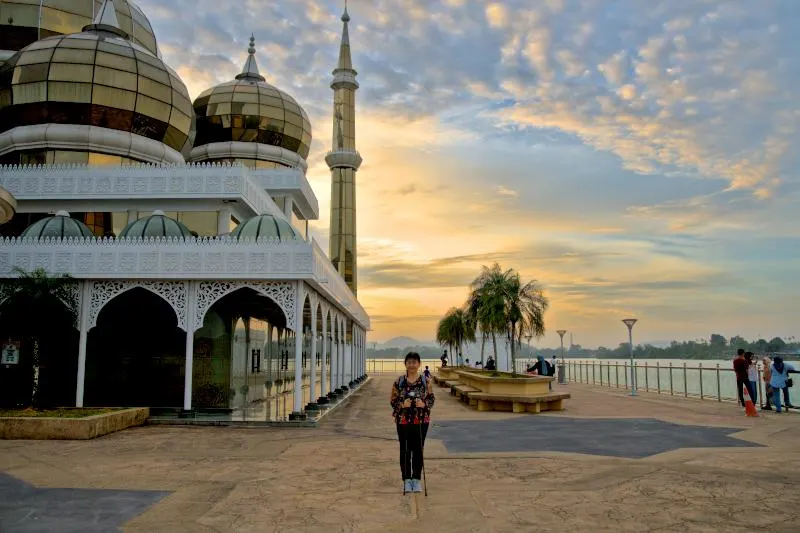
While we didn’t enter the mosque, we learned that its interior is exquisitely decorated, featuring frosted glass windows and a magnificent crystal chandelier as the centerpiece of the main prayer hall.
9. Taman Tamadun Islam (The Islamic Heritage Park)
The following day, after enjoying breakfast at the famous Kampong Atas Tol restaurant, we headed to Taman Tamadun Islam.
It was a beautiful day with a bright blue sky, perfect for photography. Upon entering the park, we opted for a train ride, which cost RM7 per person. The train followed a paved path that circled the entire park, taking us to 23 miniature replicas of mosques from 21 countries worldwide.
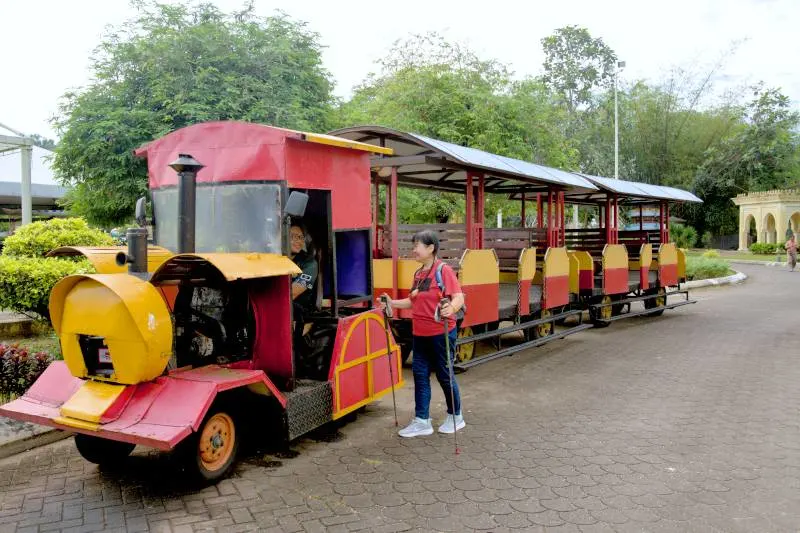
Although there were just two of us, the train master still agreed to take us around, stopping at various significant mosque replicas and allowing us to alight from the train to take a closer look. Along the way, there was a recorded commentary synchronized with our journey, explaining the sights on our left and right in Bahasa Malaysia. The train traveled slowly, so I took most of the photos and video clips, although I missed some of them. Some mosque replicas even featured small exhibition halls in their basements.
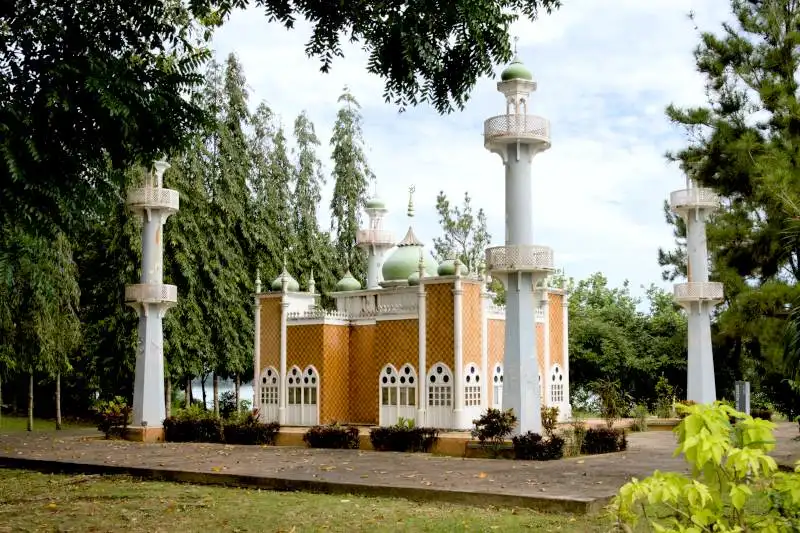
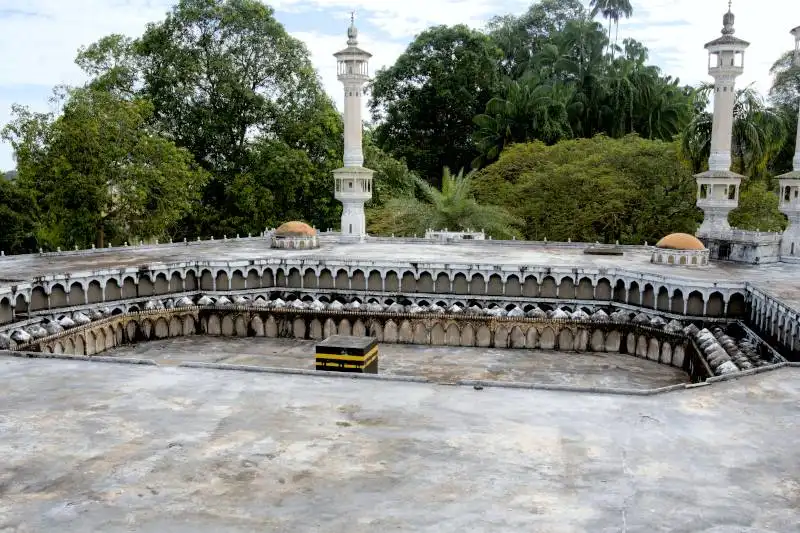
This experience was one of the highlights of our trip to Terengganu. Even though I am not a Muslim, I thoroughly enjoyed the ride as if I were traveling the globe to get close to these diverse sacred places. While some of the mosques no longer exist and others have been destroyed for various reasons, including war, I felt fortunate to see their untouched replicas.
Some mosques had unconventional Islamic architectural designs that truly stretched my imagination!
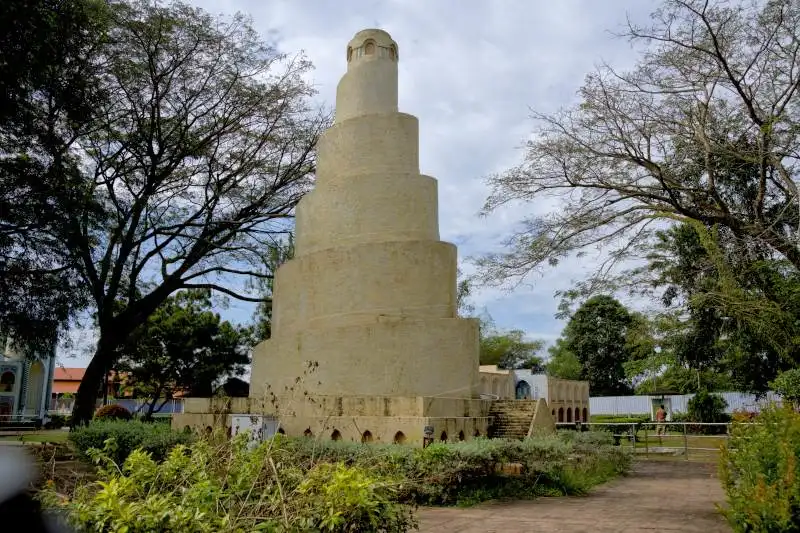
Toilet facilities are located throughout the park. If you prefer not to take the train ride, you can leisurely walk to visit various mosque replicas, as they are close. After the train ride, which lasted about an hour and stopped at several important replicas, I walked to a few more mosque replicas I missed, including those from Iran, Iraq, Palestine, and Turkey.
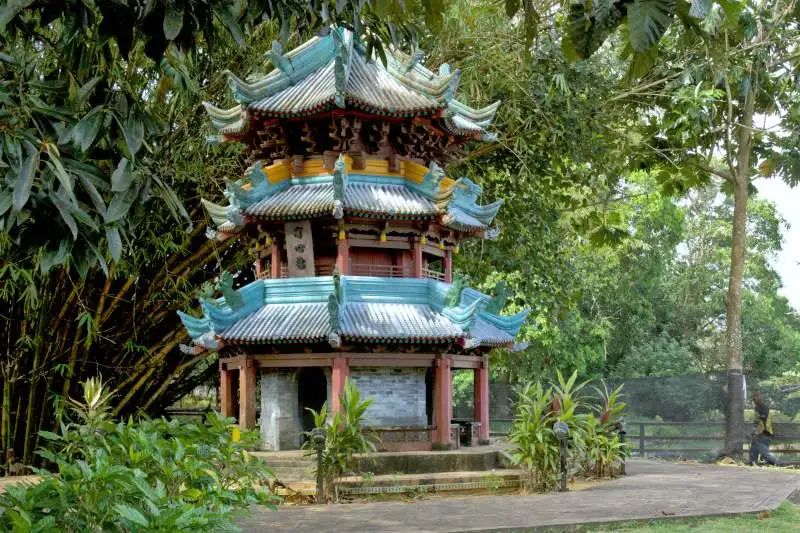
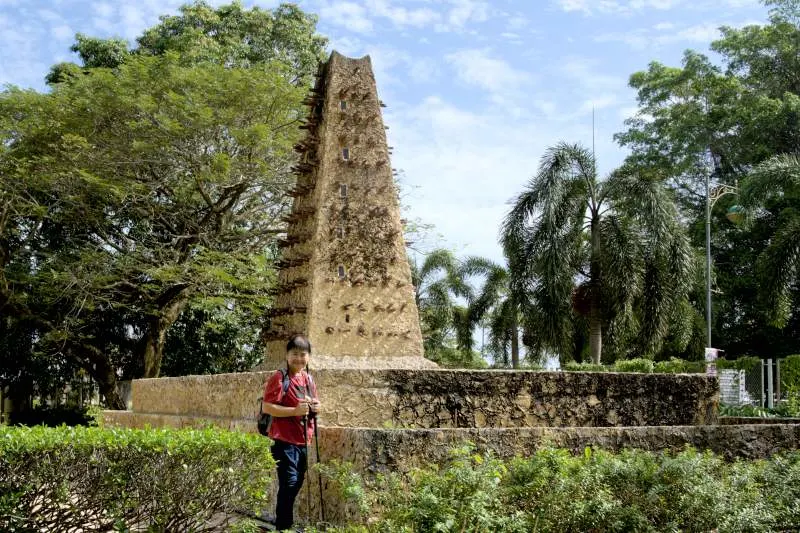
10. Pantai Batu Buruk (Batu Buruk Beach)
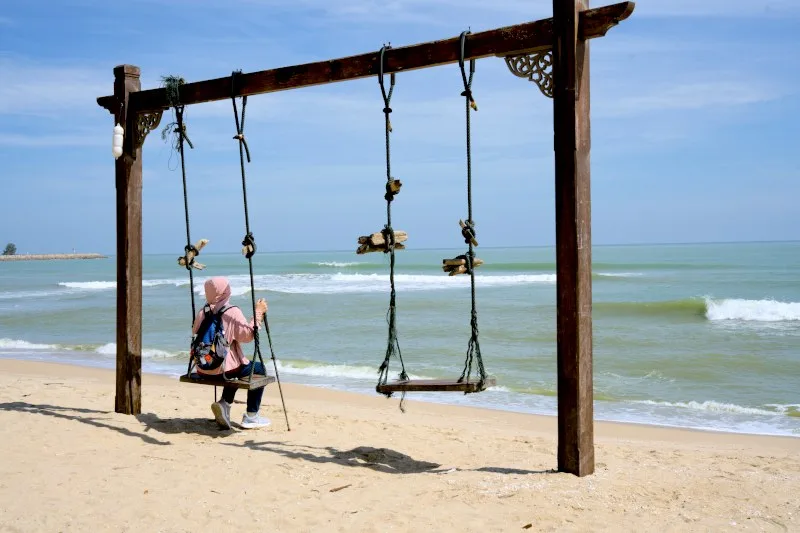
After visiting the Islamic Heritage Park, we went to Pantai Batu Buruk, where we decided to grab a quick lunch. Since it was noon, we opted for convenience and ate at A&W, enjoying some fried chicken and a Coney dog, rather than searching for local food options.
The beach itself is lovely, stretching out long and serene. There weren't many activities during my visit, likely due to the heat and bright sun. As the day goes on, I imagine this spot will become much livelier, with more people coming for swimming and strolls along the shore.
11. Muzium Negeri Terengganu (Terengganu State Museum)
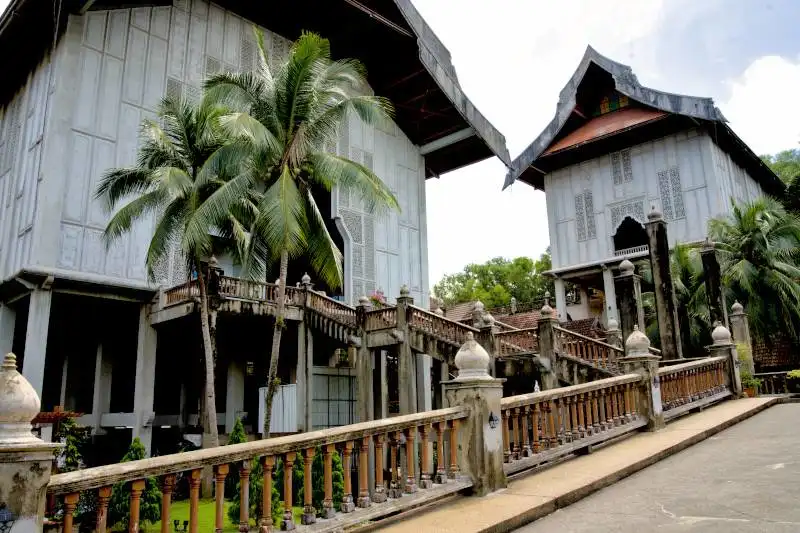
The Terengganu State Museum is a modern building beautifully constructed according to traditional Malay architecture. It was opened in 1996, and its design draws inspiration from the classic Terengganu Malay palace. The museum has elevated wooden structures, intricate carvings, and multi-tiered roofs. Although it is not an ancient historical site, the museum's architectural style reflects the rich cultural heritage of Terengganu, giving it the appearance of a grand traditional structure. It houses extensive exhibits on Islamic heritage, maritime history, and local crafts.
We arrived at the museum after lunch, and to our surprise, visitors were bustling that day. Although parking was available inside the compound, we opted to park outside along the road since the parking area was packed.
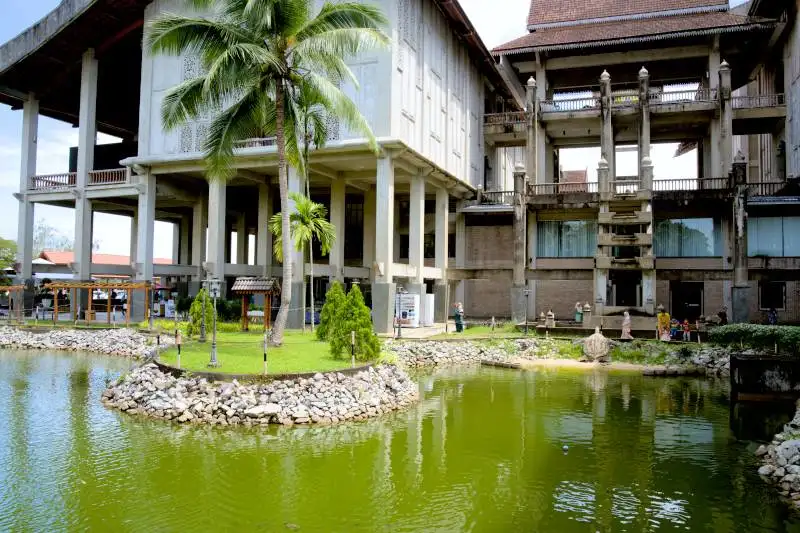
The museum stands out with its beautifully landscaped garden, making it an ideal venue for weddings, birthdays, and other celebrations. It's unique; I have not seen any other museum designed this way. As we entered, an ongoing wedding ceremony was on the ground floor.
The entrance is on the first floor, where the ticketing counter is located. The entrance fee for local adults was RM5.
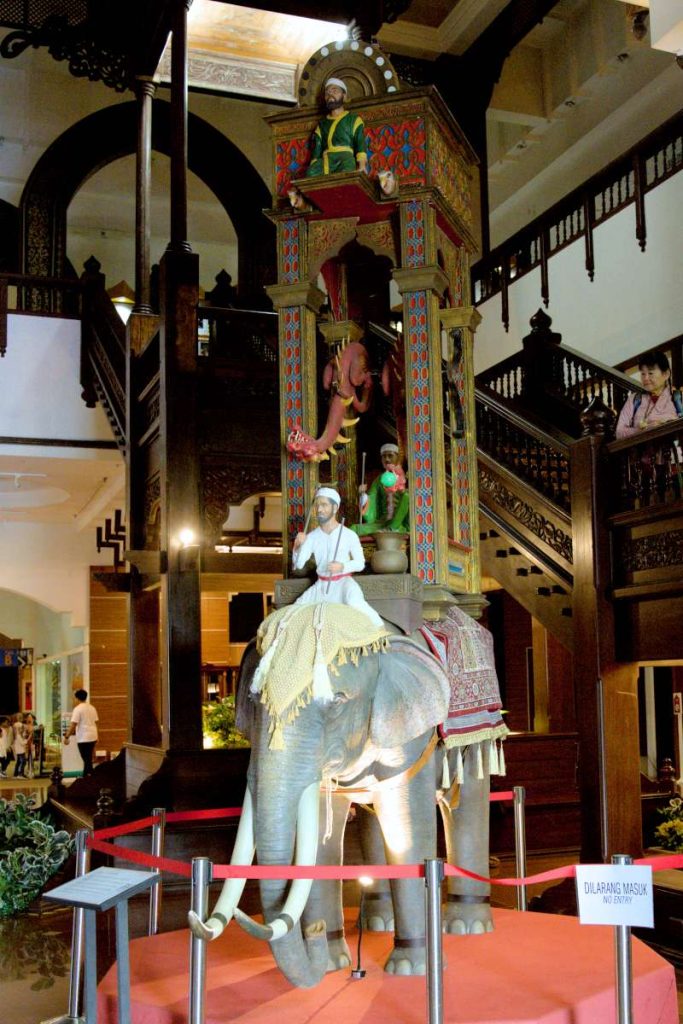
The museum is one of the largest museums in Malaysia. Its first floor features an intriguing collection of historical weapons and popular children’s games from Terengganu, which we used to play when we were young, evoking nostalgic memories of our childhood.
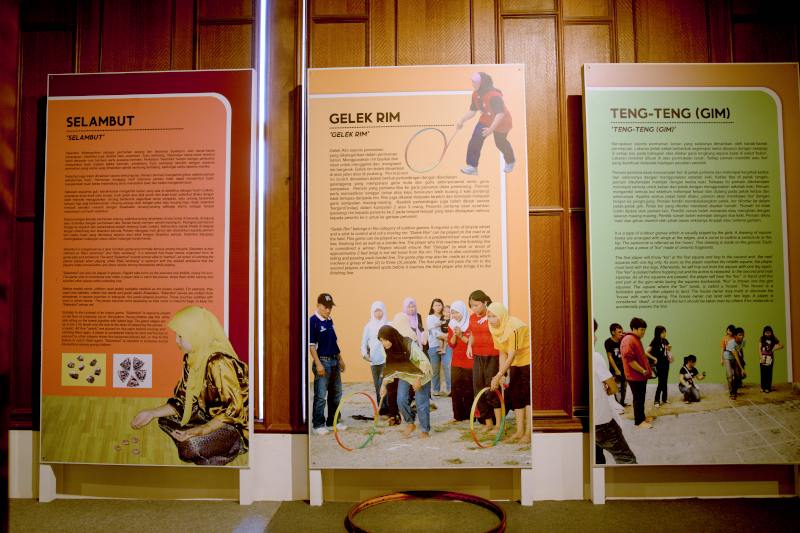
There are also beautiful metalware and exquisite woodcraft from Terengganu.
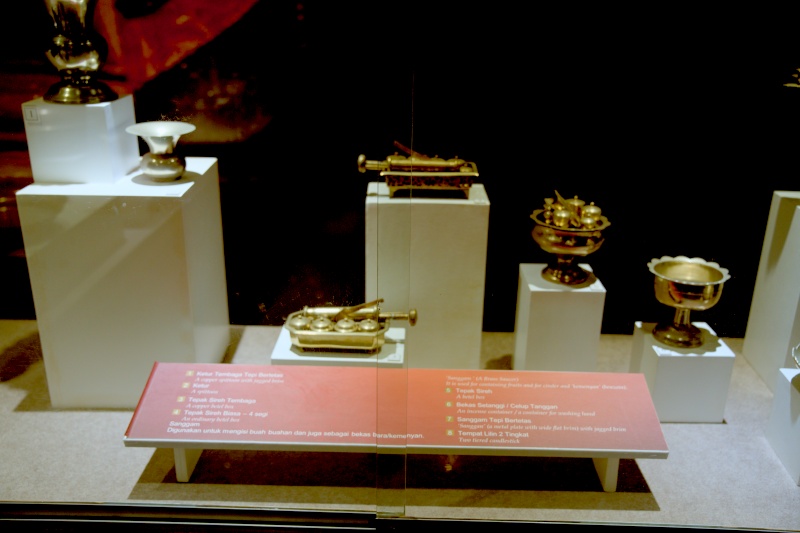
The upper floor features informative posters about Terengganu's history from ancient times to now.
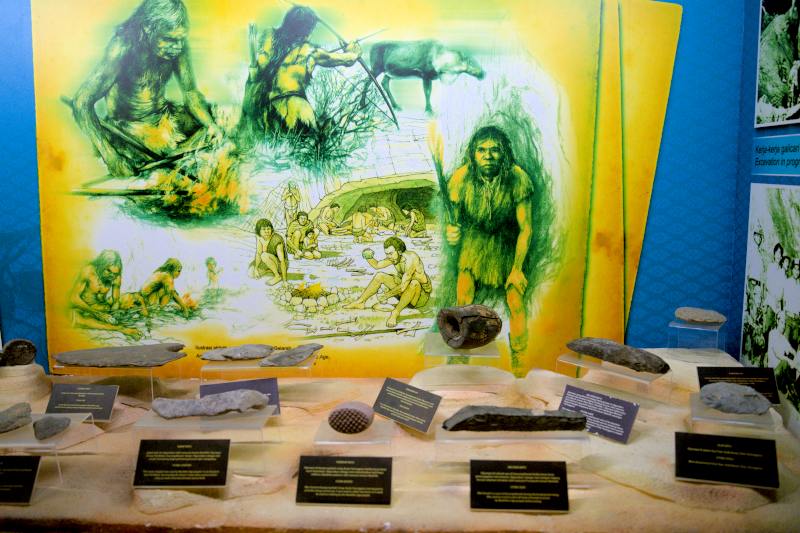
The ground floor is dedicated to Terengganu's traditional costumes.
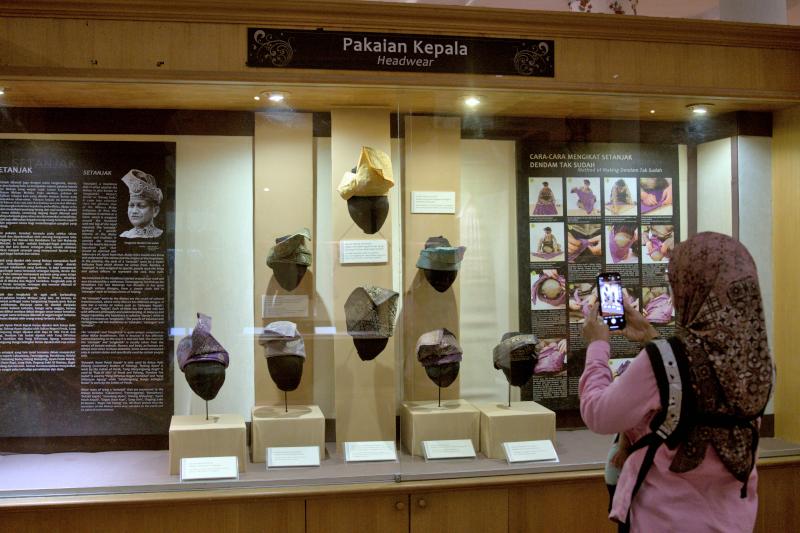
Overall, visiting this museum is a valuable opportunity to understand Terengganu better. While we spent about an hour in the exhibition hall, those keen to explore the should reserve at least half a day to fully appreciate all the exhibits on display.
12. Kota Lama Duyung (GPS 5°20'10.77072"N 103°7'38.208"E)
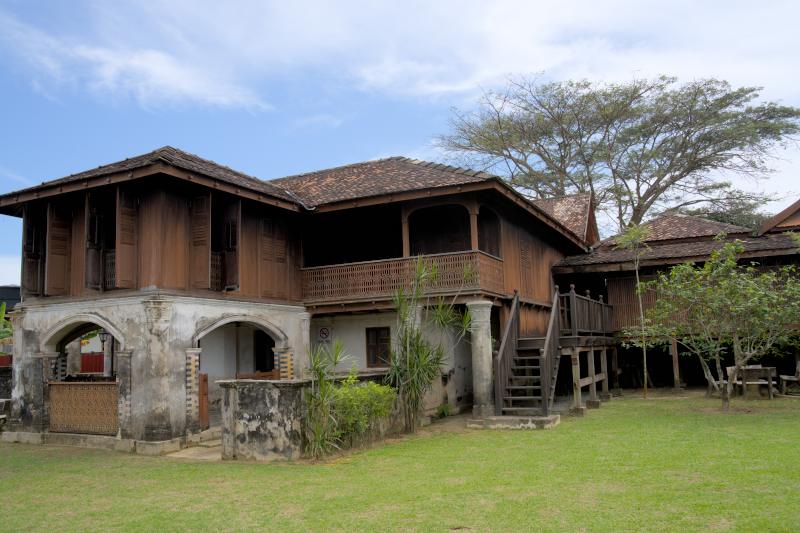
Next, we made our way to Kota Lama Duyung, one of the heritage buildings on our list. To be honest, we weren’t quite sure what to expect, although we had read several travel articles about it. Finding the place was challenging, as neither Google Maps nor Waze guided us to the exact position, although they did get us close.
According to Waze, we ultimately decided to park the car nearby. With the help of Google Maps, it was just a short two-minute walk away. However, as various village houses surrounded the site, there wasn’t a road for vehicles leading directly to it. I’ve provided the exact GPS coordinates for your reference.
The house is a glorious two-story traditional Malay house once owned by a wealthy person called Dato' Biji Suara. Its spacious interior features many rooms, antique furniture, and utensils on display. In the hall, informative posters explain the history and stories associated with this remarkable place.
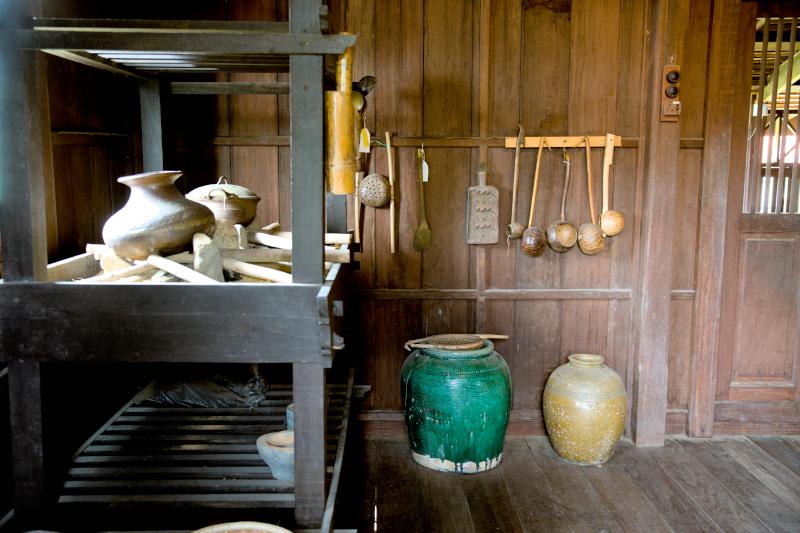
If you haven't had the chance to visit a traditional Malay house before, I highly recommend it as an enriching experience. However, for those who have, it may not rank high on my list of must-see attractions in Kuala Terengganu, as it can be somewhat challenging to locate and doesn't offer particularly spectacular sights, in my opinion.
13. Pantai Pandak
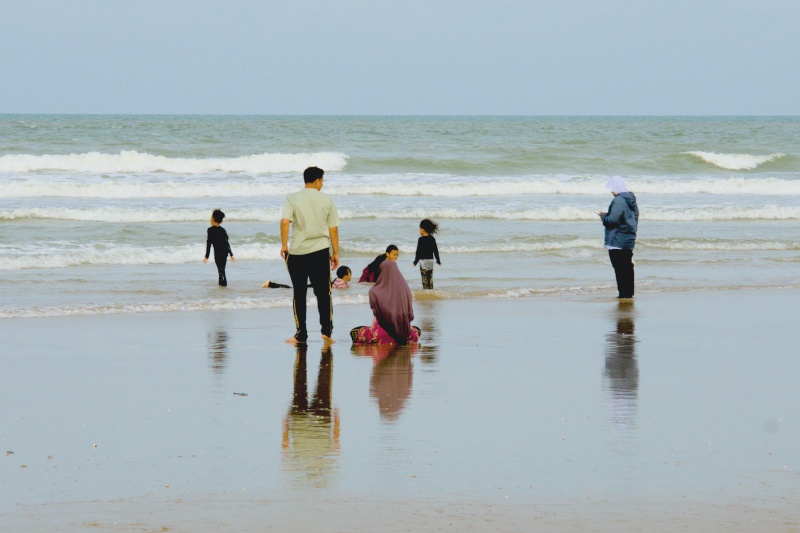
After a brief rest at the hotel, we went to Pandak Beach, curious to see if it would be livelier than Pantai Batu Buruk, which we had visited earlier. To our delight, we found many more people enjoying themselves here, likely due to the evening's softer sunlight compared to the midday heat.
A small kiosk offered snacks, but the beach lacked other facilities. Families with young children played along the shore, and an individual fish, hoping to catch stingrays!
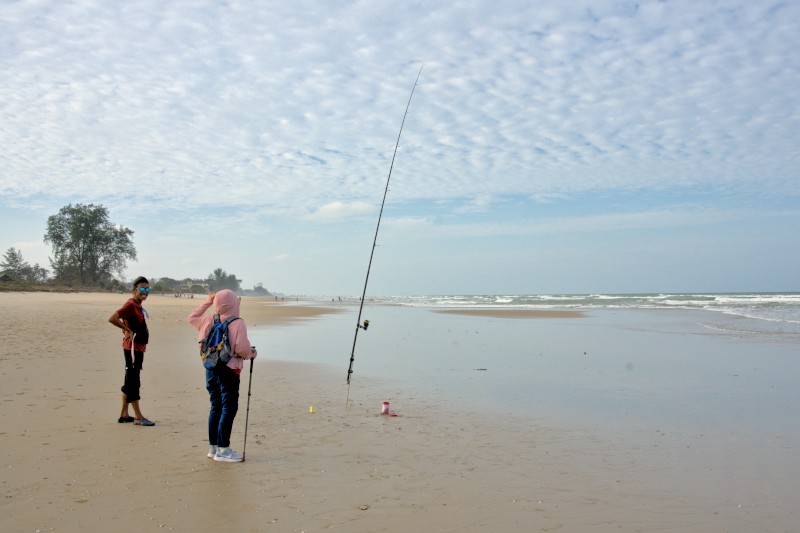
While Pandak Beach isn't as wide as Pantai Batu Buruk, the sand felt smoother underfoot, and I was captivated by the clear reflections of people playing in the water.
14. Tengku Tengah Zaharah Mosque (Floating Mosque)
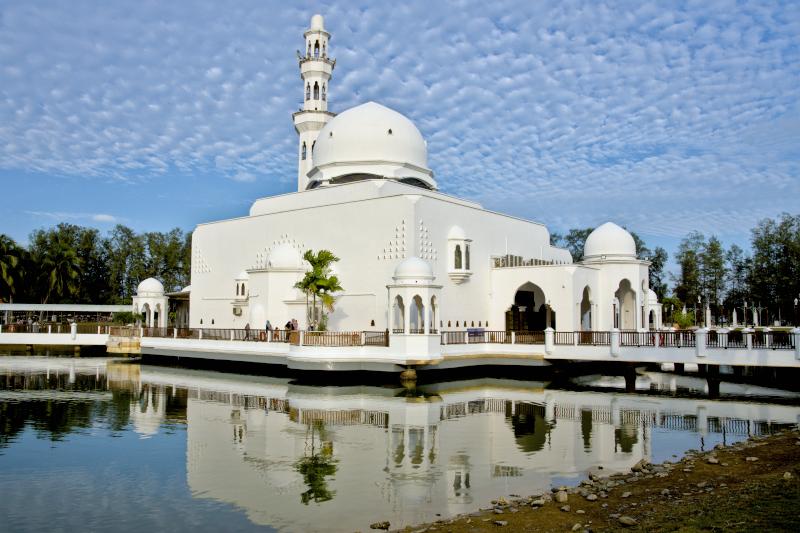
Just a short distance from Pandak Beach lies the beautiful Tengku Tengah Zaharah Mosque on the Ibai River. Its stunning reflection on the water creates an enchanting illusion, making the mosque appear floating.
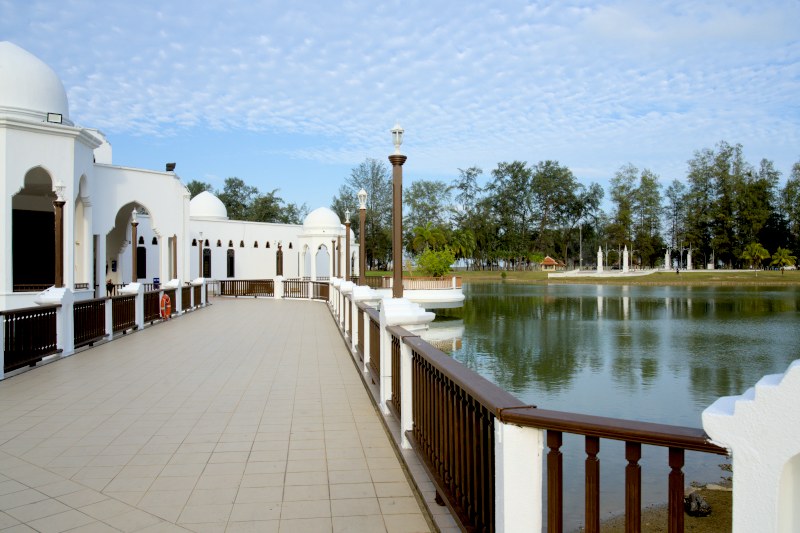
This picturesque site is complemented by the nearby Taman Rekreasi Lagoon Kuala Ibai (Kuala Ibai Lagoon Recreation Garden), a delightful recreational area for the public. Together, they offer a serene escape and breathtaking scenery for visitors.
15. Kuala Terengganu Waterfront
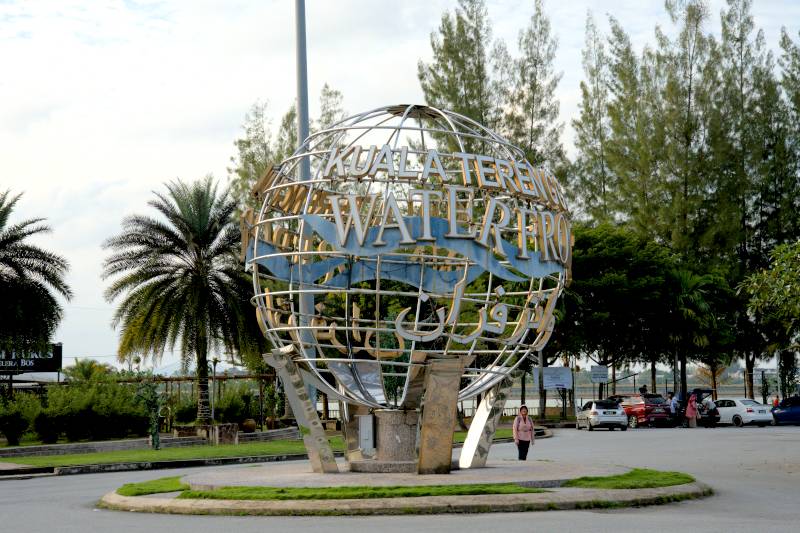
We visited the waterfront of Kuala Terengganu before heading out for dinner. The waterfront faces west and offers a lovely spot to catch the sunset on clear days.
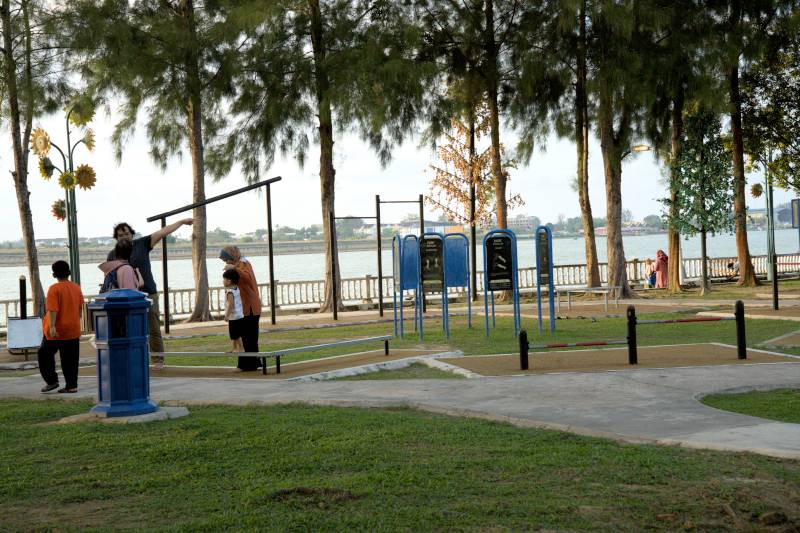
Besides, there is a children's playground nearby. While I didn't find it particularly captivating, it is a pleasant space for locals to unwind, allowing children to play and enjoy their leisure time.
16. Jambatan Angkat Kuala Terengganu (Kuala Terengganu Drawbridge)
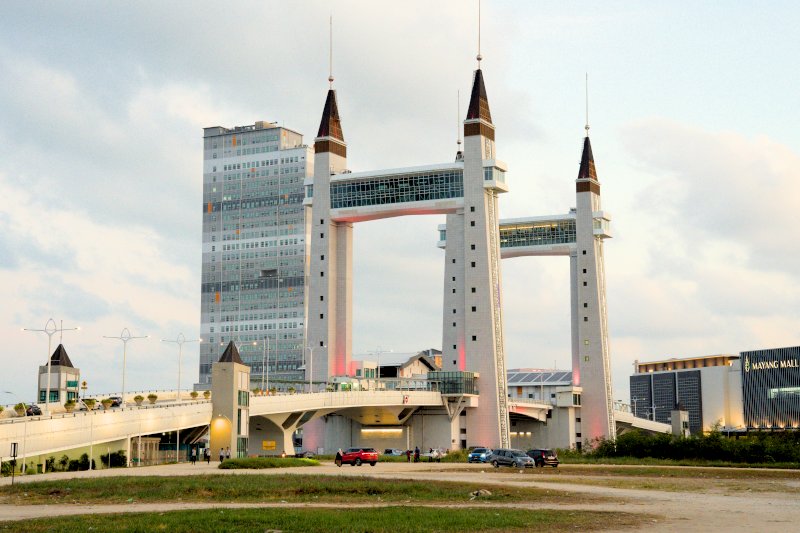
The bridge is a remarkable piece of architecture that has become an iconic symbol of Kuala Terengganu.
We parked our car on the vase-empty land across the river from the city. As dusk settled in, the sky was partially illuminated, providing a stunning backdrop for the bridge, which had just come to life with glowing lights. The bridge's colors and design are breathtaking. It is the most beautiful architecture in Kuala Terengganu.
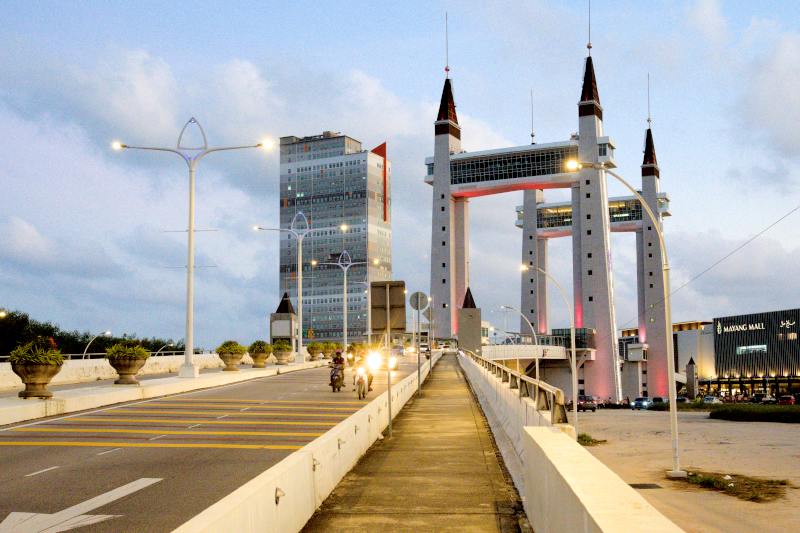
The bridge features a pedestrian walkway alongside the vehicle lanes, allowing anyone to stroll to the center, the perfect vantage point for sunset views. Unfortunately, dark clouds obscured the horizon during our visit, so we had no luck with that beautiful sunset view. Nonetheless, seeing the bridge was undeniably one of the best attractions in Terengganu that we have visited.
17. Bukit Puteri
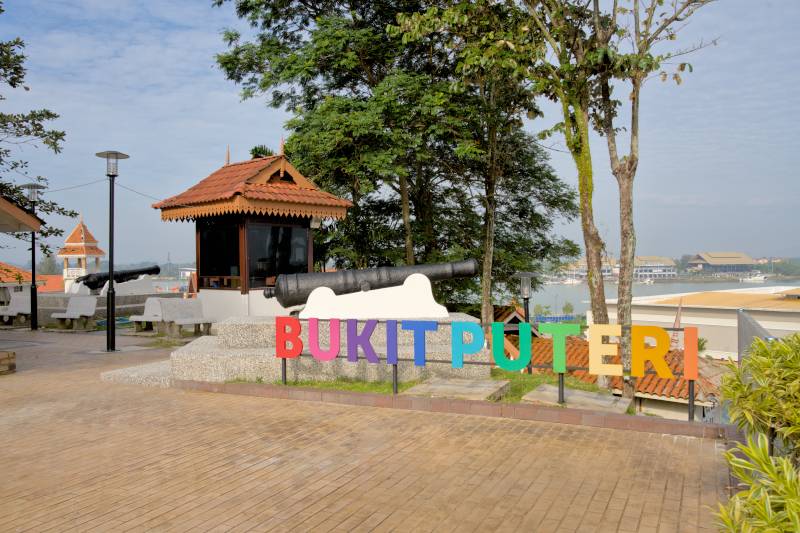
Bukit Puteri was the final attraction in Kuala Terengganu, which we explored before returning to Kuala Lumpur. Located just across Pasar Payang, we had to climb several flights of stairs to reach its summit.
Many cannons are strategically positioned in various directions on top of the hill, indicating that this place must have been a significant military stronghold.
Two canons are close to each other, one larger than the other. They are famously known as the "Cannons that Give Birth." Their proximity and differing sizes have led to the tale that the large cannon represents the mother, while the small cannon is her child..
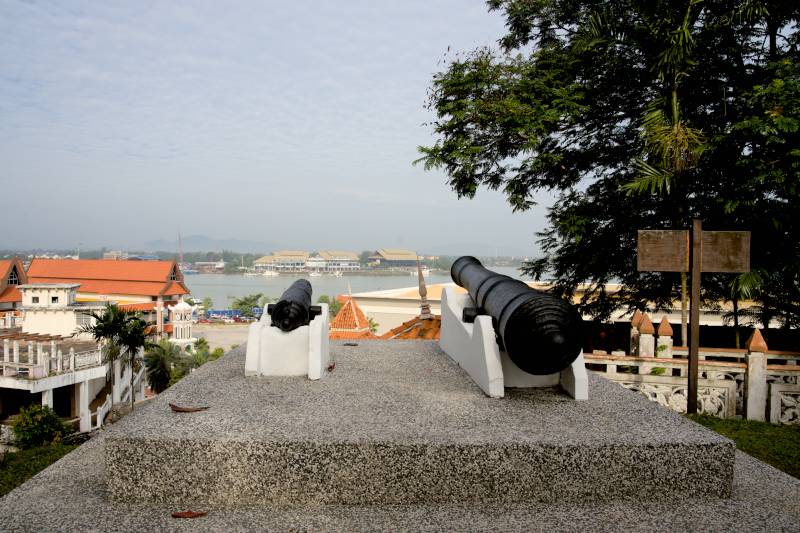
There is a 175kg bell made of yellow copper, which once served as an alarm system to alert the community to emergencies, such as a person running amok, fires, or attacks from enemies.
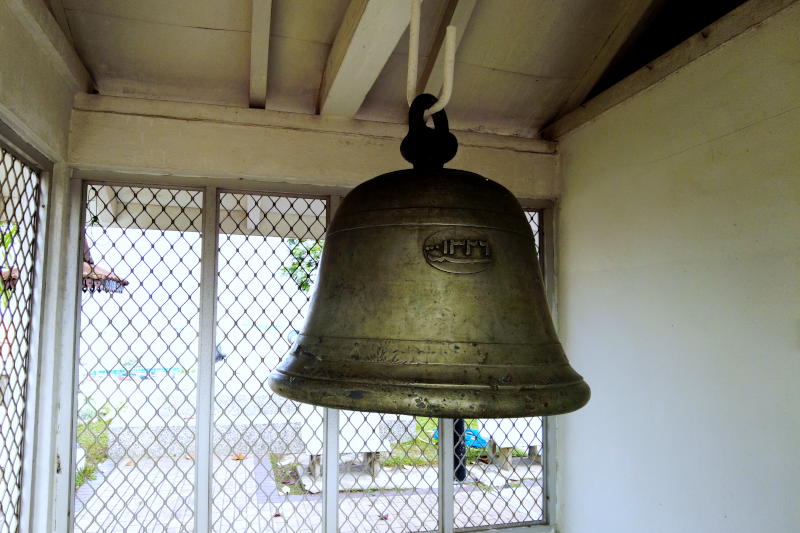
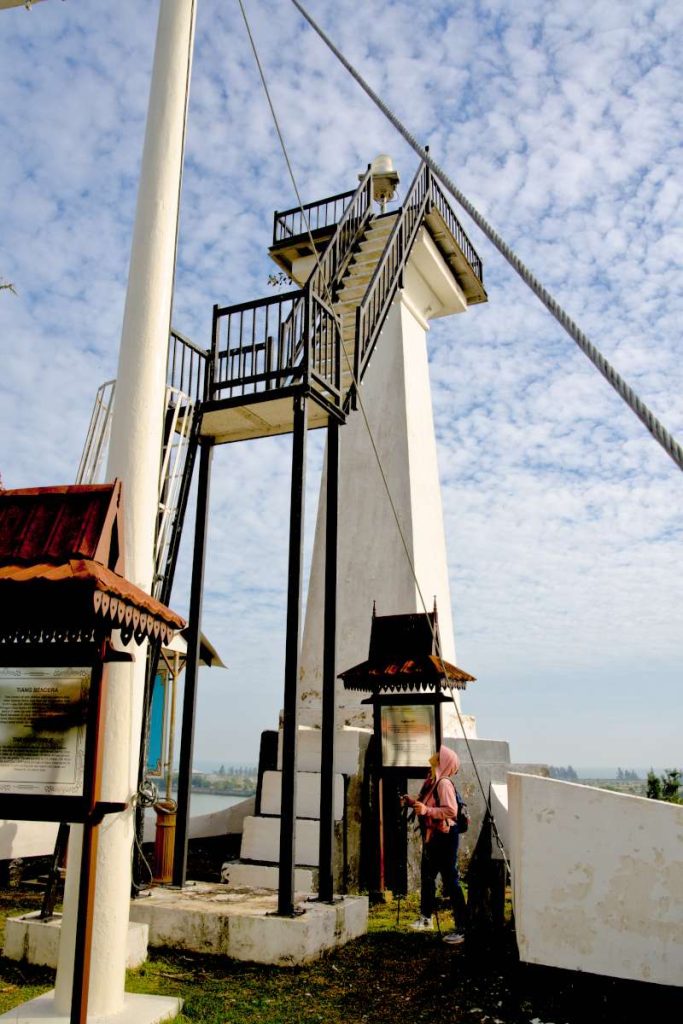
The view from here is beautiful, with the sea in the background and the nearby market just in front.
Famous food in Kuala Terengganu
While our main focus wasn't precisely to have a food trip, we couldn't resist trying some of the most famous local dishes besides visiting the attractions in Kuala Terengganu. We sampled a few standout items, all unique in flavor and not commonly found in West Malaysia—unless you're at a restaurant specializing in Terengganu cuisine.
Here’s a list of Terengganu food I strongly encourage you to try!
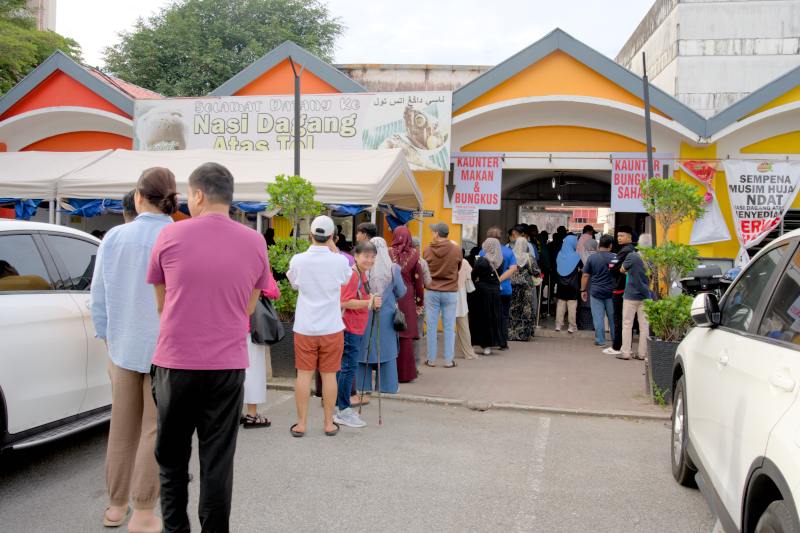
Keropok Lekor
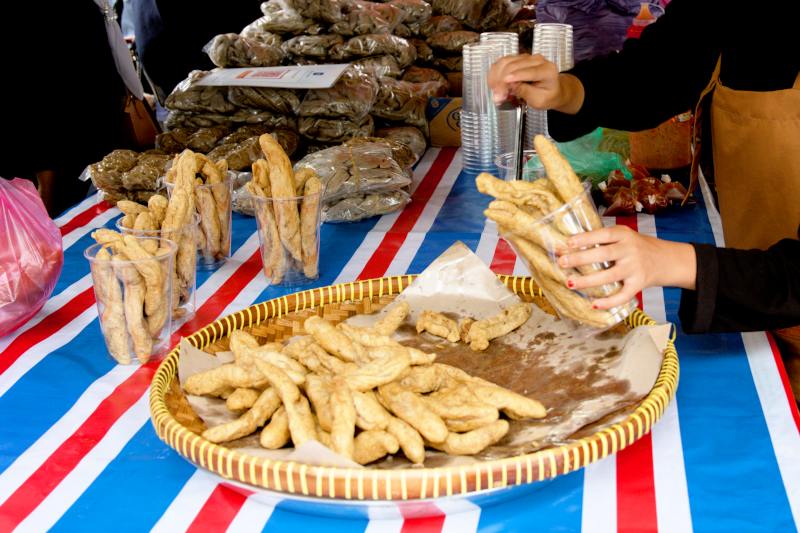
Keropok Lekor is one of the most iconic traditional snacks in Terengganu. It is prepared with minced fish, using varieties like tamban, selayang, or kembung, then rolled with sago flour. The mixture is then skillfully rolled into long, sausage-like shapes. "Lekor" means "to roll" in the local dialect. It can be either steam or deep-fried.
Laksam
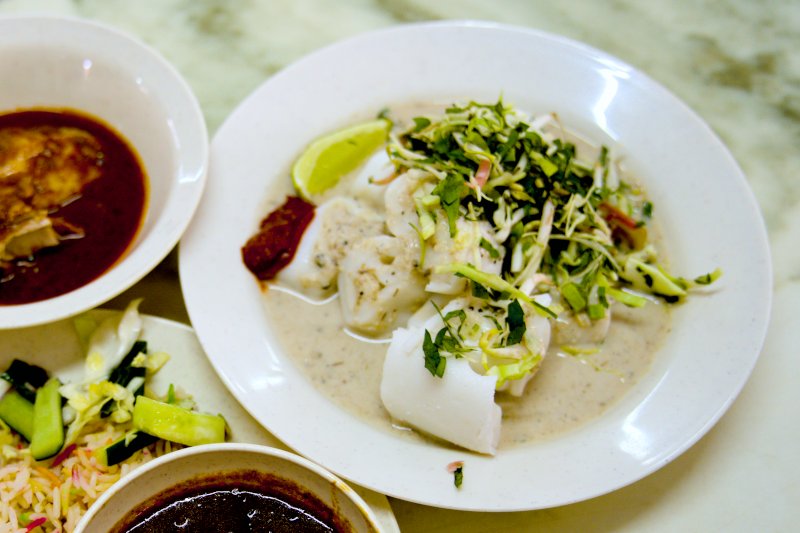
Laksam is a noodle dish with thick, flat rice noodles rolled and sliced into bite-sized pieces. The noodles are made from a batter of rice flour and water steamed until cooked.
It is served with a creamy white gravy from coconut milk and minced fish. The gravy has a rich, savory, and slightly tangy taste.
It is garnished with fresh herbs and vegetables, such as cucumber, long beans, and ulam (a local green salad).
Laksa kuah merah
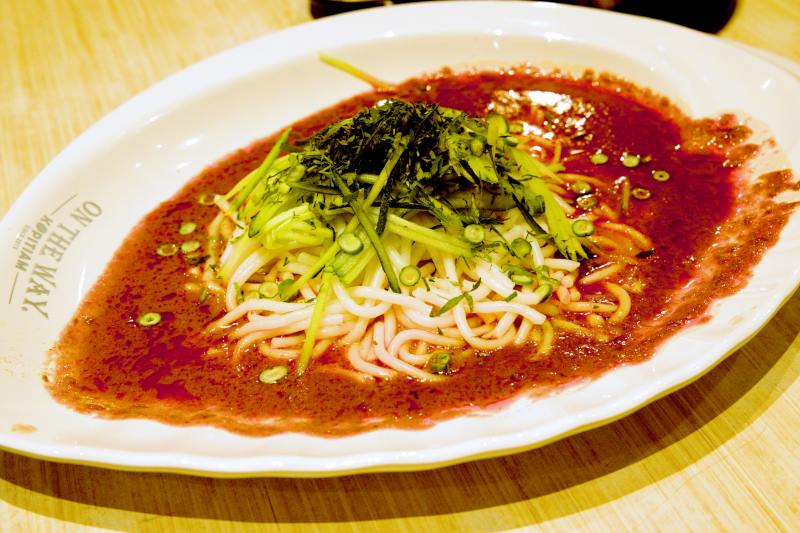
Laksa Kuah Merah is renowned for its rich and flavorful red gravy. This dish uses thick rice noodles, a staple in many Malaysian noodle dishes. The standout characteristic is its vibrant red gravy, made from spices, coconut milk, palm sugar, and fish. It is served with various toppings, including cucumber, bean sprouts, daun kesom (Vietnamese coriander), and boiled eggs.
Nasi Dagang
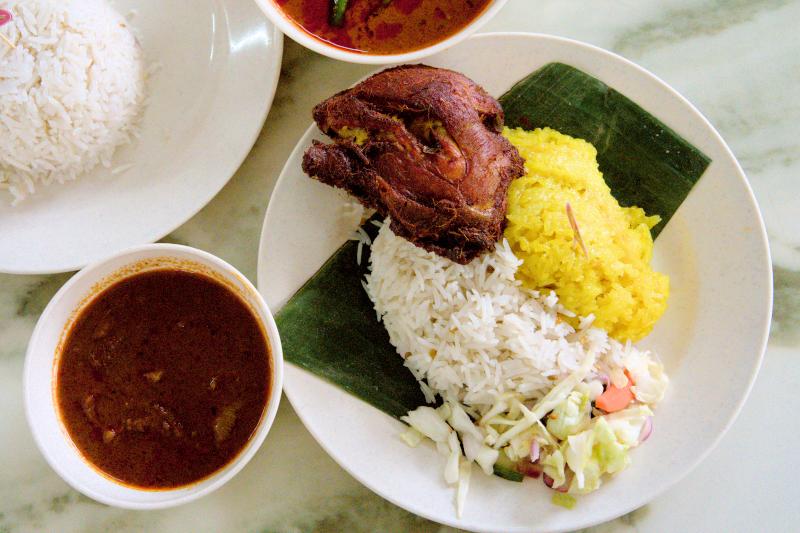
Nasi Dagang is a dish made with regular and glutinous rice cooked in coconut milk. The preparation involves soaking the rice for several hours before steaming it to achieve the perfect texture..
It is served with a fish curry made with ikan tongkol (skipjack tuna). The curry is prepared by using a mix of local spices, coconut milk, and sometimes tamarind. Besides, it is accompanied by pickled vegetables (acar) made with cucumber and carrots.
"Nasi Dagang" means "trader's rice" in Malay. This name is believed to have originated because traders and merchants prepared it for their journeys in the past.
How to get around Kuala Terengganu
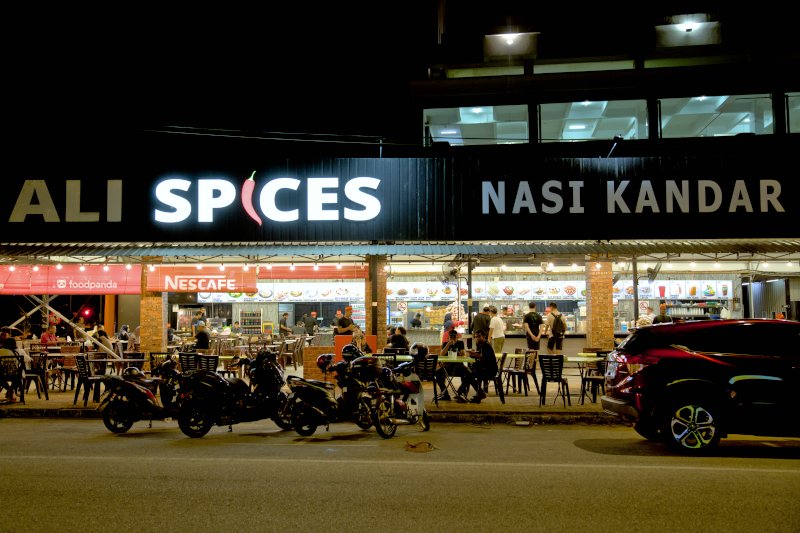
To explore various places by car is precisely what we did. We found it to be incredibly convenient. If you don't have your vehicle, I highly recommend renting a car for your trip. The primary reason is that several attractions in Kuala Terengganu are around 20 minutes away from the city, and public transportation may not reach all of them.
Although Kuala Terengganu is a relatively small city, having a car can greatly enhance your travel experience. I managed to explore all the highlighted spots in just two days. The traffic in Kuala Terengganu is generally smooth, with minimal congestion, making it easy to navigate.
Where to stay in Kuala Terengganu
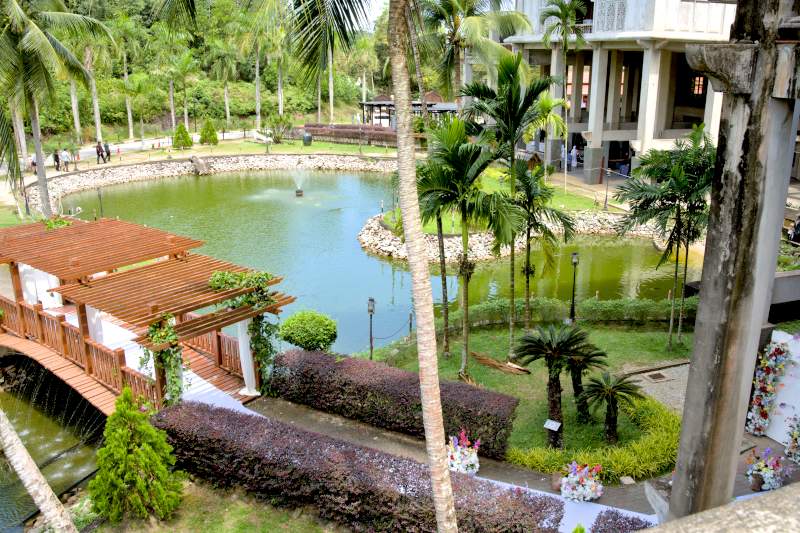
As a Malaysian, I found that the best way to book a hotel is to start with popular booking apps like Agoda or Booking.com. Once I narrow my options, I contact the hotel directly to secure the best deal possible. However, booking through the app is convenient if you prefer to skip the hassle of negotiating for a better rate or a room with a nicer view.
I stayed at the Arena Boutique Hotel in the heart of the town. I paid around RM170 per night for a room with an ensuite bathroom, two beds, air conditioning, and a desk and chair. All these are the standard amenities for three-star accommodations in Malaysia. Please note that the prices vary according to the season. Just a heads up, the pricing I shared is relevant as of February 2025.
Staying in the town center is a significant advantage. Most attractions in Kuala Terengganu are within a one to two-km radius.
🎞️ Watch the video I shot during our stay at Kuala Terengganu
Please watch the video we made at Kuala Terengganu by clicking the image below.
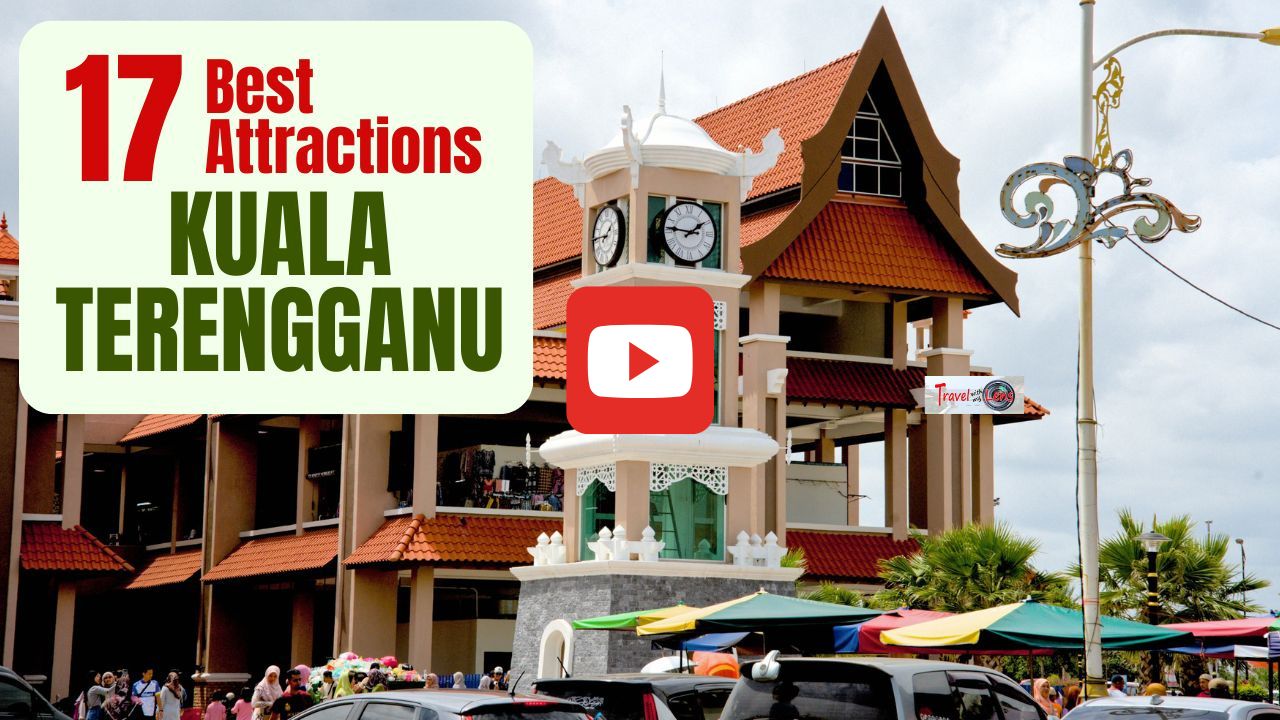
Other places of interest in the state of Terengganu
Besides the attractions in Kuala Terengganu, we have visited other fascinating places in Terengganu, including the Taaras Beach Resort at Pulau Redang, and we enjoyed diving at Pulau Perhentian. Recently, we also visited Kenyir Lake before arriving in Kuala Terengganu. We will upload our story once it's completed.
